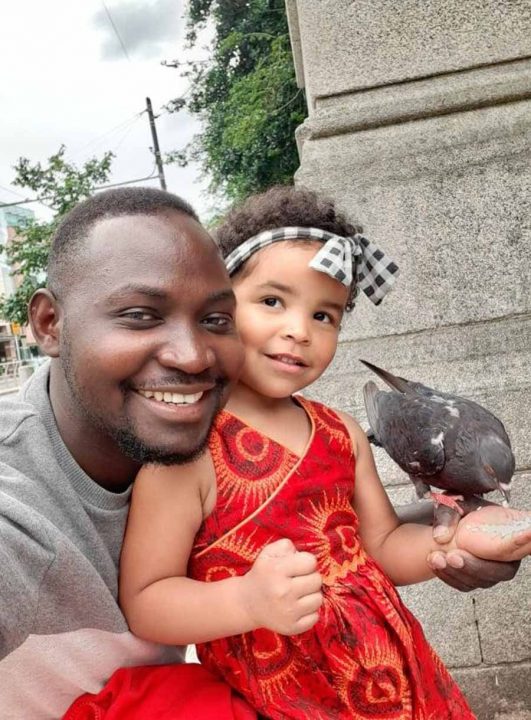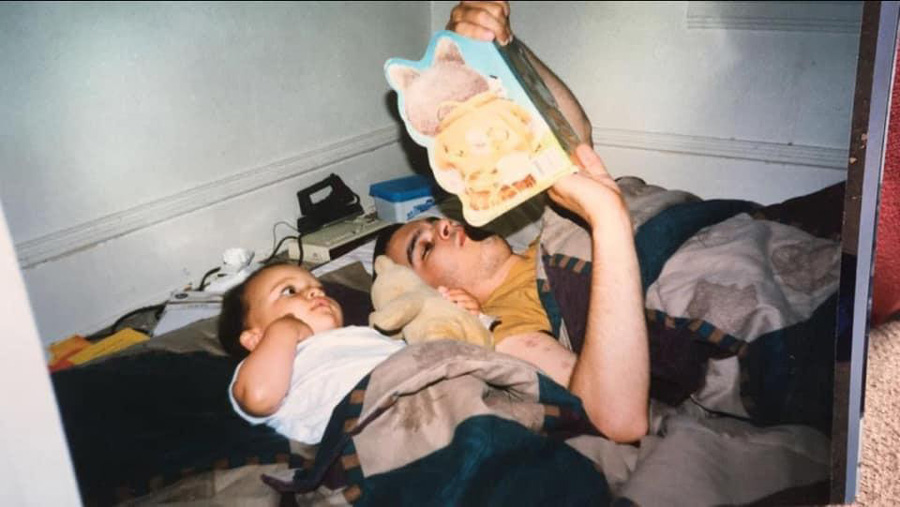The views expressed in our content reflect individual perspectives and do not represent the authoritative views of the Baha'i Faith.
“When I became a father, the first sign of sexism that I noticed straight away was how certain toys, dresses, and colors were picked up by our daughter,” says Denis Ojok, who lives with his wife and 4-year-old daughter Melody in Ireland. “This is obviously what the children see and notice from our society or their friends and even some of the family members.”

Fatherhood often makes men aware of just how insidious gender-based prejudice can be in children’s lives. Ryan Lawrence, the father to two teenage girls in Texas, saw prejudice manifest itself all around them in a way he hadn’t expected. “When I became a father, I sort of assumed that my generation had learned the lessons from previous generations,” he admits. “Sexism can crop up in unexpected places.”
RELATED: Fatherhood: Redefining What It Means to Be a Man
“It dawned on me just how much girls are targeted,” says Amin Mansuri, who raised his 12 and 24-year-old daughters in Paraguay, and who has previously written about how fatherhood helped him redefine manhood. “Not just by serial killers and criminals, but from the average catcaller on the street or some over eager guy who is much older than them.”
Navigating these pressures can be a challenge for fathers who encounter sexism from an entirely different perspective as they seek to protect their young daughters from its harmful influence on their lives. Denis noticed that Melody would sometimes tell him that certain games were only for boys, while others were only for girls. When he asked her where she had gotten this idea from, Melody said that she had heard it from friends. “I asked her why she thought certain games were only for the boys. She replied ‘God made it that way.’”
“That surprised me,” Denis says.”Of course, I had to explain to her that some of these ideas, beliefs, and experiences are inherited from our society and fellow friends and families. I try to introduce to her many different types of games and explain to her that games are just games. It doesn’t matter who plays it. And I always try to remind her that both little girls and boys are made by God so nobody is different.”
Addressing these issues directly is crucial to put a stop to harmful tendencies — both those that come outwardly from society, and even subconscious tendencies coming from within the family.
“One thing I have to do as a parent is to analyze my own behaviors,” Ryan says. “Parents tend to try to shape their child to conform with their ideas of how they think boys and girls should act. Parents [expect] their little boys to be aggressive and tough, and if they aren’t then they encourage them to be, more like pushing them to be. Whereas there is no effort to ‘toughen up’ their girls or push them to be physically active like the boys. And in like manner, when girls act aggressive, even when it is appropriate, they are discouraged.
“Parents should try to guide their children, but when they try to suppress aspects of their children’s personality solely because it doesn’t agree with their concept of how they should act based on their gender, it can lead to perpetuating stereotypes and expectations that lead to sexism in society,” Ryan says.
As Baha’is, these fathers see educating their daughters in a way that actively counteracts sexism not only as their role as fathers — but as a spiritual imperative. Amin looked to the following quote from The Most Holy Book of the Baha’i Faith, written by Baha’u’llah, the prophet and founder of the Baha’i Faith, to guide his decisions as a parent:
“Unto every father hath been enjoined the instruction of his son and daughter in the art of reading and writing and in all that hath been laid down in the Holy Tablet.”

Inspired by these words, Amin taught both his daughters to read and write himself, and along with his wife, consciously encouraged them to be curious about science. “We made a conscious decision to look for toys that stimulate the intellect (LEGOs, science kits, telescopes, etc.) over those that seem to promote materialism —for example, Barbie, which originally was invented so girls could imagine grown-up life, but today seems to be more focused towards promoting boyfriends, clothes, and fashion. We sought to promote physical activity and to teach them that they could do anything. That they could take on difficult professions and be leaders in their community.”
But beyond toys, Amin also made sure to provide his daughters with a spiritual education, teaching them to pray and turn to holy writings in times of need — skills that would help them face challenges in their lives.
Making conscious choices like these, Ryan explains, is a daily exercise in reflection. “On a daily basis, I need to review my parenting style and examine whether I am doing things that may contribute to gender bias. Did I make sure they knew they could buy a truck instead of a doll, or at least know that I would be okay with either choice? Am I encouraging both academics and physical activities the same way with both boys and girls? Am I encouraging them to pursue fields of study that they are passionate about regardless of whether it is a field predominately chosen by the other gender?”
RELATED: Why It’s Important to Discuss Gender Inequality with Teens
Abdu’l-Baha, the son of Baha’u’llah, wrote that “The world of humanity has two wings—one is women and the other men. Not until both wings are equally developed can the bird fly. Should one wing remain weak, flight is impossible.” This quote helped Ryan as he reflected on his role in creating a more just world, as it reminded him of “countless meetings and interactions where the balance of feminine and masculine perspectives blended together to form excellent decisions, [while] groups with only one gender can sometimes have less balanced viewpoints.”
“It’s important for me as a father to encourage my children to contribute to society and respect others, not to feel like their position or opportunities are limited or need to be compromised, but at the same time it’s important for me to educate them that others may not feel that way and may treat them unfairly at times because of their gender,” Ryan says. “Encourage and prepare them, give them mental, intellectual, and spiritual tools to achieve success in a world that is not always fair or unbiased.”

While these realities are harsh and conversations about them can also be difficult, at the end of the day, our fathers’ constant support, encouragement, and example is an incredible source of comfort and hope for young women navigating a world that often feels stacked against them.
Fathers who consciously combat sexism offer their daughters an example of what to expect from the men around them, even starting from a very young age. For example, Denis often has Melody help him cook and do the dishes, “so she learns that everybody is equal and that we can all participate in the same activities whether we are boys or girls.” This, in turn, might inspire young men to rise to a higher standard of equality than the one currently prevalent in society: one where men and women love, respect, and listen to one another both at home and in the wider society, and where young girls can rise to their full potential.
“The Baha’i Faith [says that] we are ‘created to carry forward an ever-advancing civilization,’” Denis says. “I keep thinking about how best I can participate in bringing my daughter up to be better for the next generation. This helps remind me all the time to try my best to be a good father and a friend to my daughter. I love my little girl.”

















Comments
Sign in or create an account
Continue with Facebookor